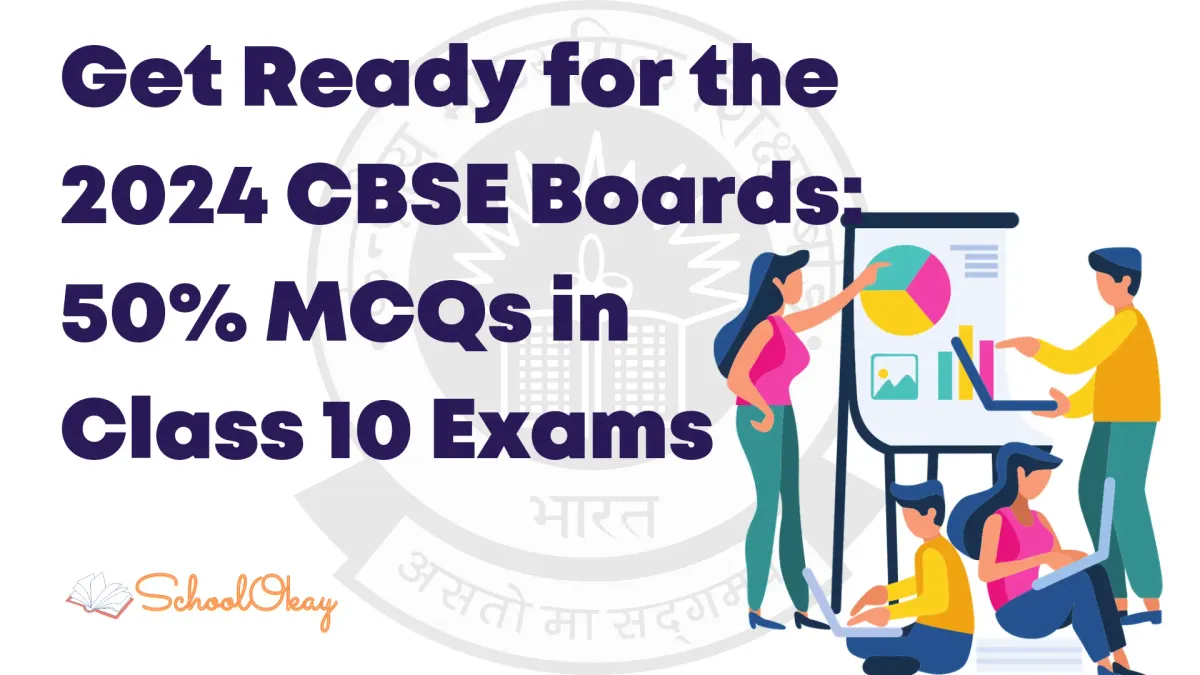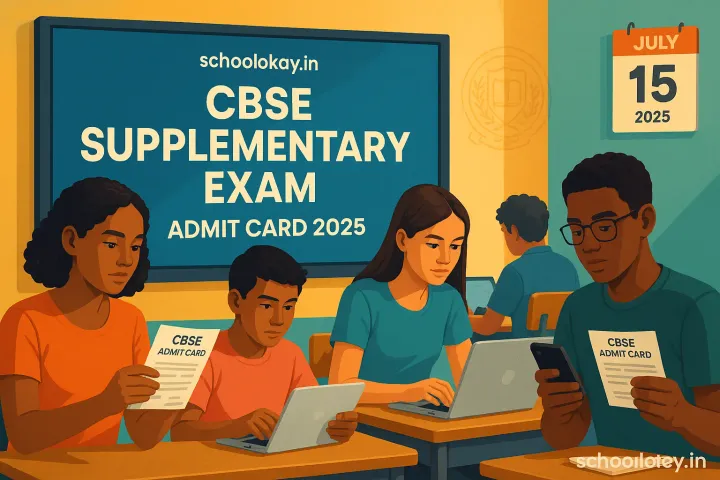Get Ready for the 2024 CBSE Boards: 50% MCQs in Class 10 Exams
Here we have shared new updates from the CBSE class 10th exams. Now 50% are going to be MCQ-based questions in upcoming board exams.

As a student, we know how important it is to stay updated with the latest changes in the education system. The Central Board of Secondary Education (CBSE) has just revealed a plan to overhaul its evaluation structure for the upcoming Class 10 and 12 board exams in 2024.
The new assessment scheme is a part of the National Education Policy (NEP), which aims to improve the quality of education in India.
Let's delve into the alterations brought forth by CBSE and the probable implications they hold for the scholars.
CBSE Class 10 new announcement
Every student's academic expedition encompasses a vital milestone in the form of CBSE Class 10 board exams. The board exams test your knowledge and determine your future career prospects. The students are in for a significant influence as the new evaluation pattern for Class 10 board exams takes shape.
At the forefront of the assessment schemes revamp is the integration of Multiple-Choice Questions (MCQs), constituting the most significant transformation. According to the new scheme, 50% of the Class 10 question paper will consist of MCQs. In essence, students must prepare themselves for the conventional subjective questions and the addition of MCQs.
In essence, students must prepare themselves for both the traditional personal questions and the addition of MCQs.
The introduction of MCQs in the Class 10 board exams aims to test students' conceptual understanding and critical thinking abilities. It will also reduce the time to evaluate answer scripts, making them more efficient and accurate.
The CBSE's decision to introduce MCQs in the Class 10 board exams is a welcome change as it will test not only the student's knowledge but also their analytical skills, which will prepare them for future challenges.
50% MCQs
The decision to include 50% MCQs in the Class 10 board exams is a bold move by CBSE. The board exams are known for their rigorous evaluation system, and introducing MCQs will change how students prepare for the exams.
MCQs are typically used to test the students' factual knowledge, and they require a different approach to preparation. Students must memorise essential facts and figures to do well in the MCQ section.
However, introducing MCQs in the board exams also has some advantages. MCQs are objective, and there is no room for subjective evaluation. This means that the evaluation process will be faster and more accurate. Moreover, MCQs are easy to score, and students who prepare well can score full marks in the MCQ section. This can be a confidence booster for students who struggle with the subjective section of the board exams.
National Education Policy (NEP)
The new assessment scheme for Class 10 board exams is a part of the National Education Policy (NEP), which aims to improve the quality of education in India. The NEP has proposed several changes in the education system, including changes in the assessment system.
The NEP aims to make the assessment system more student-centric and less stressful. Introducing MCQs in Class 10 board exams is a step towards achieving this goal.
The NEP also proposes changes in the assessment system for Class 12 board exams. The new assessment scheme for Class 12 board exams will also have 40% MCQs.
The new assessment scheme aims to test the students' analytical and critical thinking skills. The new assessment scheme will also include case studies, practical exams, and projects to assess the practical application of knowledge.
Conclusion
In conclusion, the new assessment scheme for Class 10 and 12 board exams significantly changes education.
Also read:
CBSE class 10th results soon to be declared.
Best reference books for class 10th.
Taking a career in history after class 10th.
Share and subscribe to the blog by email.



Comments ()